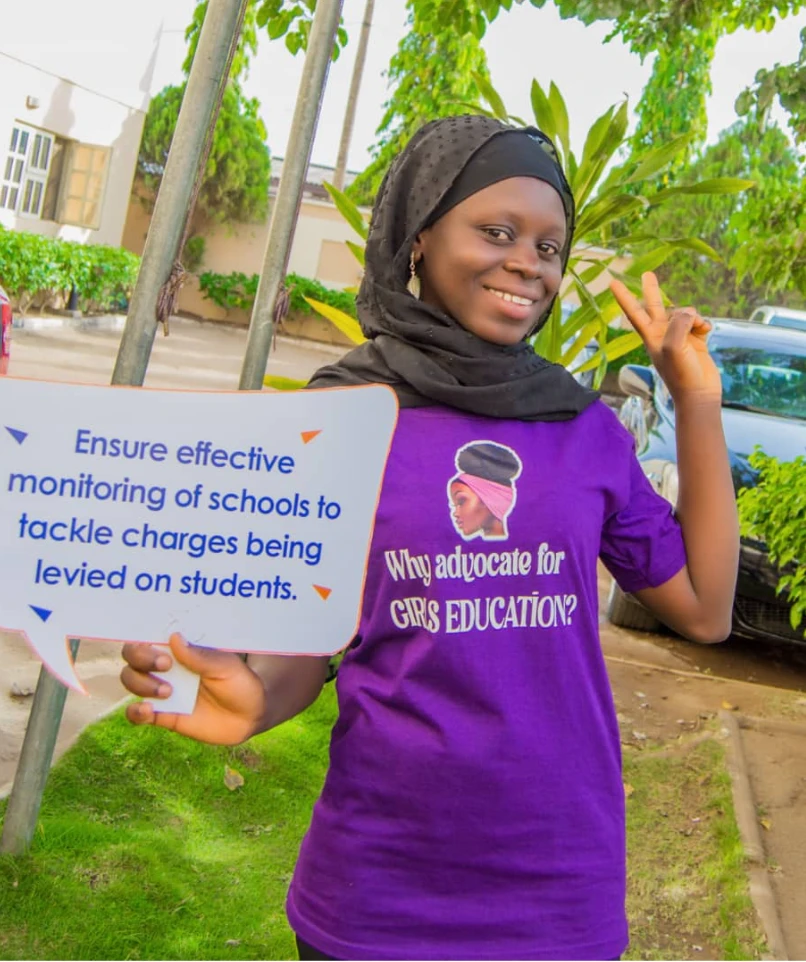
Hafsat, 21, from Kaduna state, Nigeria, writes about uplifting girls in her community through education. She is helping re-enrol girls and young women — including those who are married and mothers — in school, through Education as a Vaccine.
I always had a zeal for learning and dreams I wanted to achieve, but I came from a family that values boys’ education more than girls’, which is common for girls in my community. They believe girls don’t need to further their education beyond secondary school and that going further is a waste of time and money because they should be preparing for marriage. This is the kind of attitude about girls’ education I faced, but that didn’t stop me.
My school director and teachers always encouraged me to continue learning – they believed I deserved a good education to secure a bright future because they saw great potential in me.
Many girls loved to go to school in my community but couldn’t due to financial issues. Some girls turned to hawking or learning skills because they believed education had nothing to do with their lives. But I knew that wasn’t true.
I want to empower girls in my community through education, breaking down barriers and challenging the belief that girls' education is unimportant.
Education is vital for every girl, as they are the backbone of society. Educated girls can drive change by mentoring younger girls, advocating for their rights, participating in campaigns and more.
But unfortunately, some girls and parents in my community prioritise making money over education. They see school as a waste of time and resources, as it doesn't provide immediate financial gains.
But I have learned so much in school, beyond the classroom. I am now a girl champion in my community and I mobilise girls older and younger than me to sensitise them on the importance of education.
Initially, it was challenging to get girls and parents to listen to me about the importance of education. Some were only interested in the refreshments offered during mobilisation events. However, with persistence, I've seen progress, and many more girls are now in school. It's a rewarding experience.
I found my voice and strengthened my love for education when I began working with Education as a Vaccine. I learned so many things like speaking in public, on the media like radio appearances and organising people older and younger than me to address and mobilise girls’ education in our community.
Married women and mothers re-enrolled in school after years out of school. And girls not enrolled in school are still learning in different ways and advocating for their right to learn.
I feel proud to say that many girls now understand their right to education and its importance in their lives.
